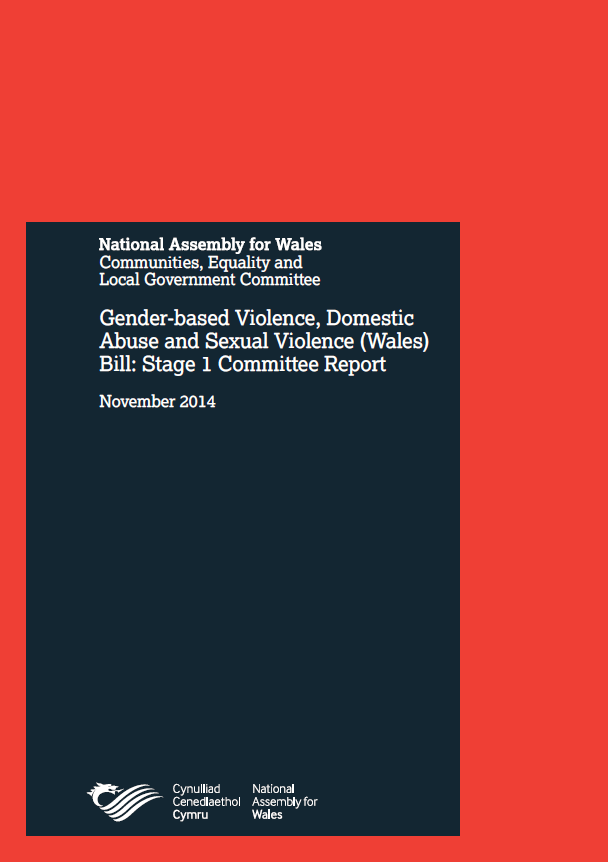Article by Hannah Johnson, National Assembly for Wales Research Service
Since its introduction in June, the Gender-based Violence, Domestic Abuse and Sexual Violence (Wales) Bill has had a rough ride in the Assembly. It began life in 2012 with a White Paper consultation on legislation to end violence against women, which was hailed as ‘ground-breaking’ by the Welsh Government and welcomed by stakeholders. The proposals were intended to strengthen leadership, improve education and awareness, and strengthen and integrate services. However, when the Bill was introduced to the Assembly in July, the name had changed, the education section had been dropped, the definitions had altered, and the duties on local authorities had become part of guidance. Campaigners publicly expressed their disappointment with the slimmed down Bill, saying that it did not focus on the primary victims of such abuse. They also criticised the lack of education and guaranteed access to services. The primary elements of the Bill (as introduced) are:
- the duty to prepare and report on national strategies;
- the duty to prepare and report on local strategies;
- the power for Ministers to issue statutory guidance and the duty to follow such guidance;
- appointment of a Ministerial Adviser on gender-based violence, domestic abuse and sexual violence.
 The Assembly’s Communities, Equality and Local Government Committee has been scrutinising the Bill since July, beginning with a round table stakeholder event. The Committee also heard oral evidence from the then Minister in charge of the Bill, Lesley Griffiths AM, a panel of children’s organisations, a panel of academics, panels of women’s and men’s organisations, third and public sector panels, and the current Minister in charge, Leighton Andrews AM. The Committee also received 90 pieces of written evidence. While respondents in written and oral evidence broadly supported the purpose and intent of the Bill, they told Members that they had major concerns about the content. In response, the Committee published its stage 1 report on 14 November. It supported the general principles of the Bill, but made twelve recommendations to the Welsh Government to amend the Bill to:
The Assembly’s Communities, Equality and Local Government Committee has been scrutinising the Bill since July, beginning with a round table stakeholder event. The Committee also heard oral evidence from the then Minister in charge of the Bill, Lesley Griffiths AM, a panel of children’s organisations, a panel of academics, panels of women’s and men’s organisations, third and public sector panels, and the current Minister in charge, Leighton Andrews AM. The Committee also received 90 pieces of written evidence. While respondents in written and oral evidence broadly supported the purpose and intent of the Bill, they told Members that they had major concerns about the content. In response, the Committee published its stage 1 report on 14 November. It supported the general principles of the Bill, but made twelve recommendations to the Welsh Government to amend the Bill to:
- use a rights-based approach to ensure a right to services for victims;
- refer to 'violence against women' in the Bill, so that the root causes of violence against women are tackled but that all victims can access services, regardless of gender;
- provide for compulsory education programmes on healthy relationships;
- establish minimum standards for local strategies;
- give the adviser independence from the Welsh Government and the power to conduct investigations;
- adopt the United Nations definition on 'violence against women' and the Home Office definition of 'domestic violence and abuse'.
Today the Assembly will debate the Committee's stage 1 report on the Bill.






